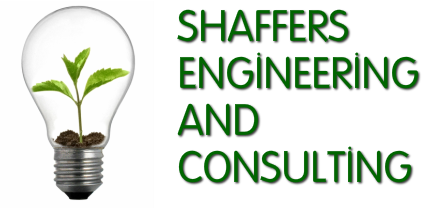The environment and drinking water and wastewater are tied so intimately together that what affects one will naturally affect the other two. Forest fires affect streams, rivers, and lakes downstream, as well as drinking water systems that get their water from local rivers. Algal blooms affect a community's wastewater discharge limits and thus how a community treats its wastewater.
Engineers, drinking water operators, and wastewater operators must change how they view community water/wastewater systems and develop new views on system design and operation and broaden their vision to include the local watershed. Shaffers Engineering and Consulting helps each group develop these new views.
Training the Engineer - Engineers can get so caught up with the day to day responsibilities of their job that they forego continuing professional development until they can take a week off to go to a week-long seminar in a distant city to obtain their professional development hours and learn the latest techniques and information. All professionals should take time out periodically to meet locally with other professionals and learn what is happening currently in environmental engineering. Shaffers Engineering and Consulting provides these training opportunities in short blocks of time in an environment that allows for discussion and application to their profession
Training the System - Too often drinking water and wastewater systems are fragmented with everyone doing their own job and not seeing how it ties into the overall goal of the system. Clerical personnel work on the paperwork, lab personnel work in the laboratory, biosolids operators work with thickening and pressing, and so forth. Each person is focused on his or her particular job. The problem with this is two-fold. First, the individual can feel isolated and doesn't feel that they have much to offer to the system as a whole. Second, one individual may have some good ideas for other areas as they have a set of fresh eyes for other areas in the plant. Shaffers Engineering and Consulting helps with team development that will encourage better teamwork, improve morale, and foster a sense of excellence in the system.
Training the Operator - Unlike other professions, there does not seem to be a clear-cut path for education and training that the operator can follow through his career to establish the basics and then constantly learn new skills and knowledge to apply to more advanced treatment and situations. Shaffers Engineering and Consulting can help the operator plan out his/her career educational goals to establish a good working knowledge of mathematics, chemistry, and hydraulics, then add to this advanced biological, chemical, and physical treatment techniques .
